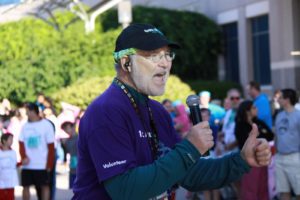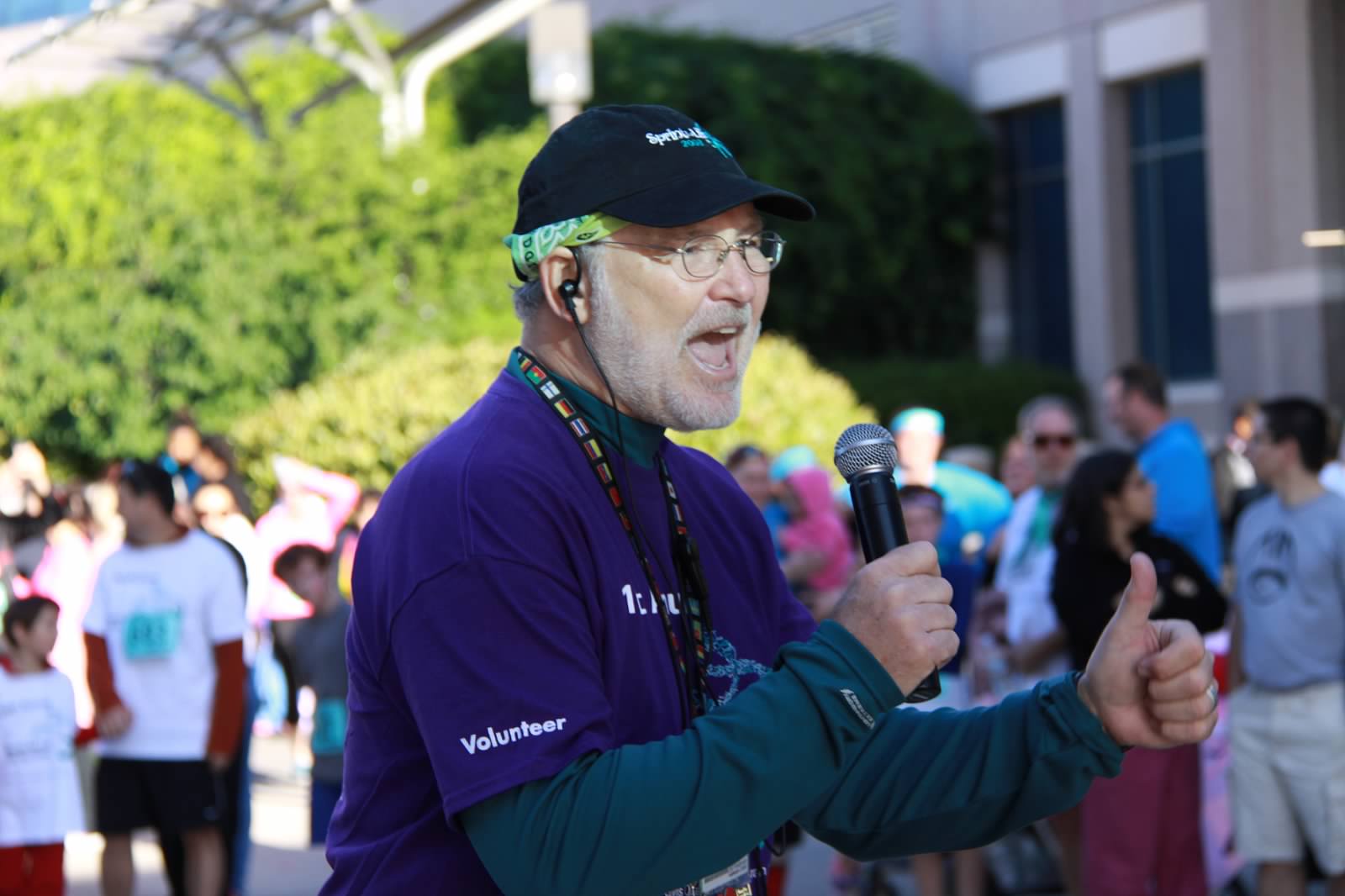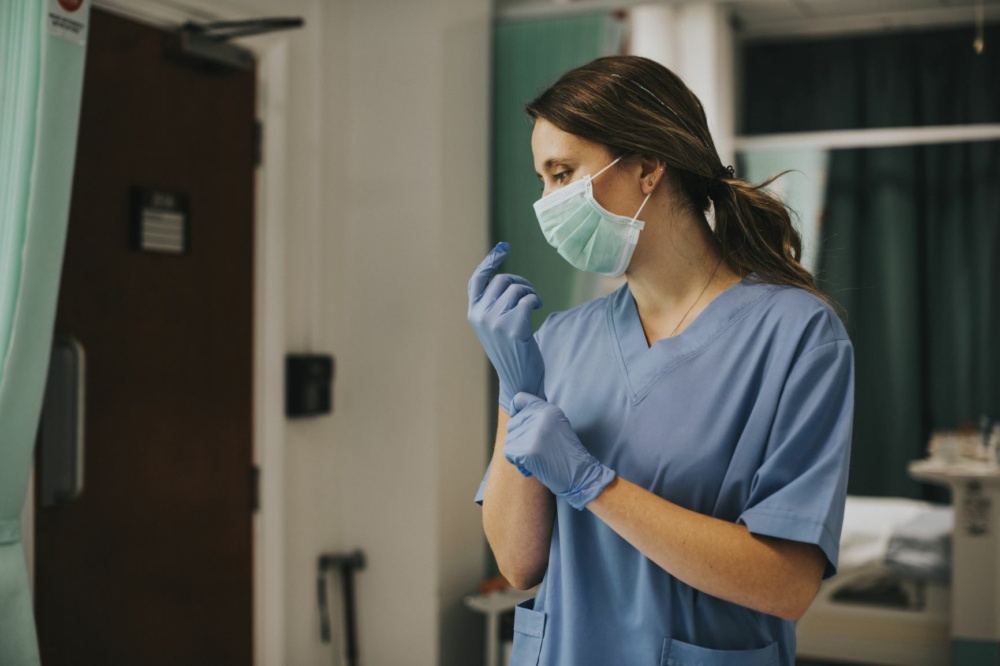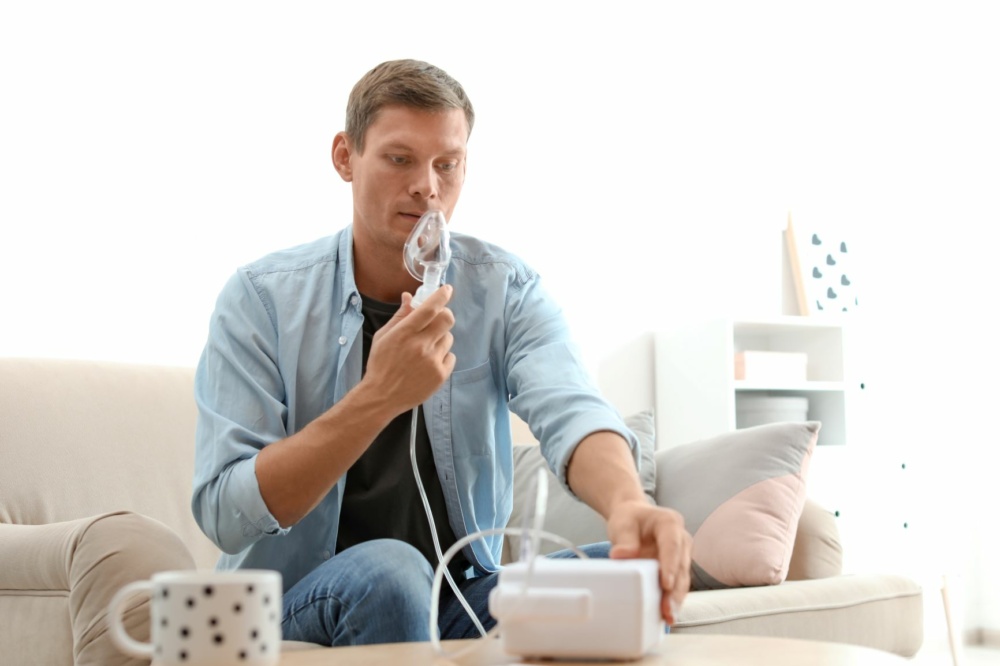It’s almost 6:30 a.m., and I’m putting the finishing touches on my morning blog. I’ve been up since 3:45 a.m., for morning stillness has always been a time for my self-exploration and discovery.
Raised in Baton Rouge, I have fond memories of drifting back to my mom’s home office at sunrise where she’d be working on her kindergarten class, and we’d sit in her rocker and watch the birds dance around the garden in first light. She fought cancer for 15 years, and her faith and belief in the goodness of life was amazing and blessed me with her positivism. My dad had an entrepreneurial spirit and worked hard to pay her healthcare bills, but by my junior year of high school, the family was bankrupt and my mother was dying.
“Like all Vietnam-era soldiers, I grew up fast, living through life lessons about dying and the preciousness of life” – William B. Baun, EPD, CWP, FAWHP
My dad also fought cancer at the end of his life, and now as a fourth stage prostate cancer survivor, I thrive because of the life lessons learned through their love of life.
Odd jobs and a scholarship got me through LSU with a degree in economics and government, but like most in the 60s, I was headed to war. My dad had been a pilot in WWII and Korea, and after flunking my flight physical, I signed up to be an airborne ranger. Like all Vietnam-era soldiers, I grew up fast, living through life lessons about dying and the preciousness of life. After my service, I worked in a church, but a car accident sent me to the hospital with a brokenback. I spent six months in the hospital addicted to morphine, and six more months in a full body cast before I finally walked.
But I’d gained a new vision for my life — to give back.
Completing a master’s degree in exercise science, my scientific curiosity quickly grew my publications, and for several years, I worked on a doctorate. At the birth of my second child, I realized I was working too hard on me and was losing my family. My job search took me to Tenneco, a large conglomerate with 101,000 employees and a Houston headquarters.

In the early 80s, the Tenneco program was part of the new breed of worksite programs moving into population wellness management. We published several of the early classic financial studies looking at healthcare cost, absenteeism and turnover, while I worked on a doctorate in human organizational systems. We gained recognition for our programming innovations from Fortune Magazine, the Washington Business Group on Health and the Surgeon General, C. Everett Koop.
Worksite wellness was growing exponentially as senior managers recognized the importance of health in human capital management, and in the late 90s, I entered the world of consulting and writing. Individuals from the MD Anderson Cancer Center attended one of my book signings, which resulted in a job to build their employee wellness program. Our MD Anderson wellness team integrated into the employee health and well-being department with occupational health and EAP. The group grew its prevention efforts and worked to create an environment where the healthy choice was the easy choice.
“But life has a way of happening, and eight years ago, my family history of prostate cancer finally caught up with me, and I was diagnosed with stage three disease” – William B. Baun, EPD, CWP, FAWHP
In a 24/7 workspace, where almost 70 percent of employees were female, we added lactation rooms where new moms shared work-life solutions and transitioned back to work faster. Fighting cancer is hard work, and stress and burnout are major challenges, so 50 percent of our early wellness classes were on stress and resilience. Coupled with this, we added stress buster stations in employee hallways and the largest free employee fitness center in the Texas Medical Center.
We quickly learned that it was not just about individual behavior change, but team positivism and support were critical, so we developed mini-culture change techniques to strengthen departmental wellness efforts.
But life has a way of happening, and eight years ago, my family history of prostate cancer finally caught up with me, and I was diagnosed with stage three disease.
As I entered my mid-60s I realized my cancer journey needed me to focus on myself in a different way. I left my departmental management position and was given the title of Wellness Officer, where I could focus more on strategy, mentoring, research, committee work, and teaching in both the employee and cancer survivorship programs. I renewed old passions, and I’ve published peer-reviewed articles with writing teams from the UT School of Public Health, the Center for Disease Control and had an article published in the Harvard Business Review.
I wave the MD Anderson flag all over the world through my teaching, and last year, I taught in Chile and Argentina. My favorite work is teaching cancer survivor and caregiver groups about hope, gratitude, laughter yoga, the art of calm and other topics that are critical to a life after cancer. My daily blog is read by thousands and has connected me with patients and caregivers, so my cancer journey life coaching is growing.
It’s an amazing journey this walk we call life, and as my life experience has taught me, we don’t do life alone!





Recent Comments